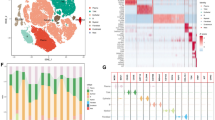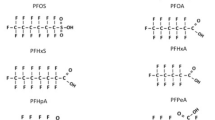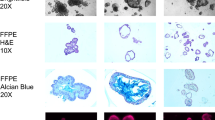Abstract
The value of PTEN in tumors has long been appreciated including colorectal cancer (CRC). It is a negative regulator of the PI3K/AKT/mTOR signaling pathway that is known to be actuated in human cancers. However, PTEN-regulated modulation of the main pathway components in different rat ecosystems is unknown. The results demonstrated the negative transcriptional correlation between Pten and Mtor and Akt genes in rats living in an urban or rural habitat. The downregulation of Pten in colon epithelium led to the upregulation of Mtor and Akt genes, possessing risk in terms of CRC for urban rats. However, for rural rats this condition was vice versa, emphasizing that rural habitat can be protective in terms of CRC. The study is valuable for the identification of the link between cancer susceptibility and urban/rural environments. Furthermore, the cytotoxic effects of urbanization in rat populations were determined by detecting chromosomal aberrations. Due to the expansion of industrial and agricultural activities of the growing human population, the rapid vanishing of natural habitats is inevitable. Being also “messengers” of environmental pollution, the disclosure of health-affecting cellular processes in different habitats of rats living in close proximities to humans will contribute to environmental policies and human wellness.



Similar content being viewed by others
References
Adams LW, Van Druff LW, Luniak M (2005) In: Braun CE (ed) Managing urban habitats and wildlife. Techniques for wildlife investigations and management, 6th edn. Bethesda, Maryland, USA, pp 714–739
Alberti M, Correa C, Marzluff JM, Hendry AP, Palkovacs EP, Gotanda KM, Hunt VM, Apgar TM, Zhou Y (2017a) Global urban signatures of phenotypic change in animal and plant populations. Proc Natl Acad Sci USA 114:8951–8956. https://doi.org/10.1073/pnas.1606034114
Alberti M, Marzluff J, Hunt VM (2017b) Urban driven phenotypic changes: empirical observations and theoretical implications for eco-evolutionary feedback. Philos Trans R Soc Lond B Biol Sci 372:20160029. https://doi.org/10.1098/rstb.2016.0029
Alimba CG, Adewumi OO, Binuyo OM, Odeigah PGC (2021) Wild black rats (Rattus rattus Linnaeus, 1758) as zoomonitor of genotoxicity and systemic toxicity induced by hazardous emissions from Abule Egba unsanitary landfill, Lagos, Nigeria. Environ Sci Pollut Res Int 28:10603–10621. https://doi.org/10.1007/s11356-020-11325-7
Aoki K, Tamai Y, Horiike S, Oshima M, Taketo MM (2003) Colonic polyposis caused by mTOR-mediated chromosomal instability in Apc+/Delta716 Cdx2+/- compound mutant mice. Nat Genet 35:323–330. https://doi.org/10.1038/ng1265
Benacer D, Mohd Zain SN, Sim SZ, Mohd Khalid MKN, Galloway RL, Souris M, Thong KL (2016) Determination of Leptospira borgpetersenii serovar Javanica and Leptospira interrogans serovar Bataviae as the persistent Leptospira serovars circulating in the urban rat populations in Peninsular Malaysia. Parasit Vectors 9:1–11. https://doi.org/10.1186/s13071-016-1400-1
Boffetta P, van der Hel O, Norppa H, Fabianova E, Fucic A, Gundy S, Lazutka J, Cebulska-Wasilewska A, Puskailerova D, Znaor A, Kelecsenyi Z, Kurtinaitis J, Rachtan J, Forni A, Vermeulen R, Bonassi S (2007) Chromosomal aberrations and cancer risk: results of a cohort study from Central Europe. Am J Epidemiol 165:36–43. https://doi.org/10.1093/aje/kwj367
Bowen KA, Doan HQ, Zhou BP, Wang Q, Zhou Y, Rychahou PG, Evers BM (2009) PTEN loss induces epithelial–mesenchymal transition in human colon cancer cells. Anticancer Res 29:4439–4449
Byun DS, Ahmed N, Nasser S, Shin J, Al-Obaidi S, Goel S, Corner GA, Wilson AJ, Flanagan DJ, Williams DS, Augenlicht LH, Vincan E, Mariadason JM (2011) Intestinal epithelial-specific PTEN inactivation results in tumor formation. Am J Physiol Gastrointest Liver Physiol 301:G856–G864. https://doi.org/10.1152/ajpgi.00178.2011
Cai QY, Chen XS, Zhong SC, Luo X, Yao ZX (2009) Differential expression of PTEN in normal adult rat brain and upregulation of PTEN and p-Akt in the ischemic cerebral cortex. Anat Rec (Hoboken) 292:498–512. https://doi.org/10.1002/ar.20834
Cavia R, Cueto GR, Suárez OV (2009) Changes in rodent communities according to the landscape structure in an urban ecosystem. Landsc Urban Plan 90:11–19. https://doi.org/10.1016/j.landurbplan.2008.10.017
Chatenoud L, Garavello W, Pagan E, Bertuccio P, Gallus S, La Vecchia C, Negri E, Bosetti C (2016) Laryngeal cancer mortality trends in european countries. Int J Cancer 138:833–842. https://doi.org/10.1002/ijc.29833
Clark DA (1982) Foraging behavior of a vertebrate omnivore (Rattus rattus): Meal structure, sampling, and diet breadth. Ecology 63:763–772. https://doi.org/10.2307/1936797
Cochak MR, Favalesso MM, Costa RM, Guimarães ATB, Ribeiro LFC (2021) Land use as an effective factor on the occurrence of chromosomal diseases in Brazil. Int J Mol Epidemiol Genet 12:102–111
Codrich M, Dalla E, Mio C, Antoniali G, Malfatti MC, Marzinotto S, Pierobon M, Baldelli E, Di Loreto C, Damante G, Terrosu G, Pucillo CEM, Tell G (2021) Integrated multi-omics analyses on patient-derived CRC organoids highlight altered molecular pathways in colorectal cancer progression involving PTEN. J Exp Clin Cancer Res 40:1–17. https://doi.org/10.1186/s13046-021-01986-8
Combs M, Byers KA, Ghersi BM, Blum MJ, Caccone A, Costa F, Himsworth CG, Richardson JL, Munshi-South J (2018a) Urban rat races: spatial population genomics of brown rats (Rattus norvegicus) compared across multiple cities. Proc R Soc B 285:20180245. https://doi.org/10.1098/rspb.2018.0245
Dan HC, Ebbs A, Pasparakis M, Van Dyke T, Basseres DS, Baldwin AS (2014) Akt-dependent activation of mTORC1 complex involves phosphorylation of mTOR (mammalian target of rapamycin) by IκB kinase α (IKKα). J Biol Chem 289:25227–25240. https://doi.org/10.1074/jbc.M114.554881
Feng AYT, Himsworth CG (2014) The secret life of the city rat: a review of the ecology of urban Norway and black rats (Rattus norvegicus and Rattus rattus). Urban Ecosyst 17:149–162. https://doi.org/10.1007/s11252-013-0305-4
Ford CE, Hamerton JL (1956) A colchicine, hypotonic citrate, squash sequence for mammalian chromosomes. Stain Technol 31:247–251. https://doi.org/10.3109/10520295609113814
French SS, Webb AC, Hudson SB, Virgin EE (2018) Town and country reptiles: a review of reptilian responses to urbanization. Integr Comp Biol 58:948–966. https://doi.org/10.1093/icb/icy052
García-Pérez J, Fernández de Larrea-Baz N, Lope V, et al. (2020) Residential proximity to industrial pollution sources and colorectal cancer risk: a multicase-control study (MCC-Spain). Environ Int 144:106055. https://doi.org/10.1016/j.envint.2020.106055
Gardner-Santana LC, Norris DE, Fornadel CM, Hinson ER, Klein SL, Glass GE (2009) Commensal ecology, urban landscapes, and their influence on the genetic characteristics of city-dwelling Norway rats (Rattus norvegicus). Mol Ecol 18:2766–2778. https://doi.org/10.1111/j.1365-294X.2009.04232.x
Goedert J, Cochard D, Lenoble A, Lorvelec O, Pisanu B, Royer A (2020) Seasonal demography of different black rat (Rattus rattus) populations under contrasting natural habitats in Guadeloupe (Lesser Antilles, Caribbean). Mamm Res 65:793–804. https://doi.org/10.1007/s13364-020-00523-w
Grazioso TP, Brandt M, Djouder N (2019) Diet, microbiota, and colorectal cancer. iScience 21:168–187. https://doi.org/10.1016%2Fj.isci.2019.10.011
Grimm NB, Foster D, Groffman P, Grove JM, Hopkinson CS, Nadelhoffer KJ, Pataki DE, Peters DPC (2008) The changing landscape: ecosystem responses to urbanization and pollution across climatic and societal gradients. Front Ecol Environ 6:264–272. https://doi.org/10.1890/070147
Gulhati P, Bowen KA, Liu J, Stevens PD, Rychahou PG, Chen M, Lee EY, Weiss HL, O’Connor KL, Gao T, Evers BM (2011) mTORC1 and mTORC2 regulate EMT, motility, and metastasis of colorectal cancer via RhoA and Rac1 signaling pathways. Cancer Res 71:3246–3256. https://doi.org/10.1158/0008-5472.CAN-10-4058
Guo J, Wang C (2018) Analysis of contaminants in vehicle maintenance and repair enterprise. Adv Eng Res 159:228–236. https://www.atlantis-press.com/proceedings/icaset-18/25896767
Gurbanov R, Kabaoğlu U, Yağcı T (2022) Metagenomic analysis of intestinal microbiota in wild rats living in urban and rural habitats. Folia Microbiol 67:1–9. https://doi.org/10.1007/s12223-022-00951-y
Hofseth LJ, Hebert JR, Chanda A, Chen H, Love BL, Pena MM, Murphy EA, Sajish M, Sheth A, Buckhaults PJ, Berger FG (2020) Early-onset colorectal cancer: initial clues and current views. Nat Rev Gastroenterol Hepatol 17:352–364. https://doi.org/10.1038/s41575-019-0253-4
Imai K, Yamamoto H (2008) Carcinogenesis and microsatellite instability: the interrelationship between genetics and epigenetics. Carcinogenesis 29:673–680. https://doi.org/10.1093/carcin/bgm228
Isaksson C (2015) Urbanization, oxidative stress and inflammation: a question of evolving, acclimatizing or coping with urban environmental stress. Funct Ecol 29:913–923. https://doi.org/10.1111/1365-2435.12477
Kim J, Kundu M, Viollet B, Guan KL (2011) AMPK and mTOR regulate autophagy through direct phosphorylation of Ulk1. Nat Cell Biol 13:132–141. https://doi.org/10.1038/ncb2152
Kuddus MA, Tynan E, McBryde E (2020) Urbanization: a problem for the rich and the poor? Public Health Rev 41:1–4. https://doi.org/10.1186/s40985-019-0116-0
Kumar Sharma R, Agrawal M, Marshall F (2007) Heavy metal contamination of soil and vegetables in suburban areas of Varanasi, India. Ecotoxicol Environ Saf 66:258–266. https://doi.org/10.1016/j.ecoenv.2005.11.007
Lafferty KD, Hathaway SA, Wegmann AS, Shipley FS, Backlin AR, Helm J, Fisher RN (2010) Stomach nematodes (Mastophorus muris) in rats (Rattus rattus) are associated with coconut (Cocos nucifera) habitat at Palmyra atoll. J Parasitol 96:16–20. https://doi.org/10.1645/GE-2180.1
Lattard V, Benoit E (2019) The stereoisomerism of second generation anticoagulant rodenticides: a way to improve this class of molecules to meet the requirements of society? Pest Manag Sci 75:887–892. https://doi.org/10.1002/ps.5155
Liker A (2020) Biologia Futura: adaptive changes in urban populations. Biol Futur 71:1–8. https://doi.org/10.1007/s42977-020-00005-9
McKinney ML (2008) Effects of urbanization on species richness: a review of plants and animals. Urban Ecosyst 11:161–176. https://doi.org/10.1007/s11252-007-0045-4
Mercer MA, Davis JL, Riviere JE, Baynes RE, Tell LA, Jaberi-Douraki M, Maunsell FP, Lin Z (2022) Mechanisms of toxicity and residue considerations of rodenticide exposure in food animals—a FARAD perspective. J Am Vet Med Assoc 260:514–523. https://doi.org/10.2460/javma.21.08.0364
Migliore L, Migheli F, Spisni R, Copped F (2011) Genetics, cytogenetics, and epigenetics of colorectal cancer. J Biomed Biotechnol 2011:792362. https://doi.org/10.1155/2011/792362
Mitkovska V, Chassovnikarova T, Atanassov N, Dimitrov H (2012) Environmental genotoxicity evaluation using a micronucleus test and frequency of chromosome aberrations in free-living small rodents. J BioSci Biotechnol 1:67–71
Modlinska K, Pisula W (2020) The Norway rat, from an obnoxious pest to a laboratory pet. Elife 9:1–13. https://doi.org/10.7554/eLife.50651
Monteiro Neto MAB, Lazaro CCM, Tavares DC, Cecchi AO (2010) Frequency of chromosomal aberrations in peripheral lymphocytes of tannery workers in Brazil. Environ Toxicol Pharmacol 29:3–6. https://doi.org/10.1016/j.etap.2009.08.002
Mudd AM, Gu T, Munagala R, Jeyabalan J, Egilmez NK, Gupta RC (2020) Chemoprevention of colorectal cancer by anthocyanidins and mitigation of metabolic shifts induced by dysbiosis of the gut microbiome. Cancer Prev Res 13:41–52. https://doi.org/10.1158/1940-6207.CAPR-19-0362
Parsons MH, Banks PB, Deutsch MA, Corrigan RF, Munshi-South J (2017) Trends in urban rat ecology: a framework to define the prevailing knowledge gaps and incentives for academia, pest management professionals (PMPs) and public health agencies to participate. J Urban Ecol 3:1–8. https://doi.org/10.1093/jue/jux005
Pergams ORW, Byrn D, Lee KLY, Jackson R (2015) Rapid morphological change in black rats (Rattus rattus) after an island introduction. PeerJ 3:e812. https://doi.org/10.7717/peerj.812
Phillips WA, St Clair F, Munday AD, Thomas RJ, Mitchell CA (1998) Increased levels of phosphatidylinositol 3-kinase activity in colorectal tumors. Cancer 83:41–47. https://doi.org/10.1002/(SICI)1097-0142(19980701)83:13.0.CO;2-H
Pritchard CC, Smith C, Marushchak T, Koehler K, Holmes H, Raskind W, Walsh T, Bennett RL (2013) A mosaic PTEN mutation causing Cowden syndrome identified by deep sequencing. Genet Med 15:1004–1007. https://doi.org/10.1038/gim.2013.51
Puckett EE, Park J, Combs M, et al (2016) Global population divergence and admixture of the brown rat (Rattus norvegicus). Proc R Soc B Biol Sci 283:20161762. https://doi.org/10.1098/rspb.2016.1762
Putman BJ, Tippie ZA (2020) Big city living: A global meta-analysis reveals positive impact of urbanization on body size in lizards. Front Ecol Evol 8:580745. https://doi.org/10.3389/fevo.2020.580745
Rogala D, Marchwińska-Wyrwal E, Spychala A, Hajok I (2019) Incidence of colorectal cancer in urban population exposed to cadmium. Pol J Environ Stud 28:3395–3400. https://doi.org/10.15244/pjoes/92707
De Roock W, De Vriendt V, Normanno N, Ciardiello F, Tejpar S (2011) KRAS, BRAF, PIK3CA, and PTEN mutations: implications for targeted therapies in metastatic colorectal cancer. Lancet Oncol 12:594–603. https://doi.org/10.1016/S1470-2045(10)70209-6
Sadat SMA, Paiva IM, Shire Z, Sanaee F, Morgan TDR, Paladino M, Karimi-Busheri F, Mani RS, Martin GR, Jirik FR, Hall DG, einfeld W, Lavasanifar M A (2021) A synthetically lethal nanomedicine delivering novel inhibitors of polynucleotide kinase 3′-phosphatase (PNKP) for targeted therapy of PTEN-deficient colorectal cancer. J Control Release 334:335–352. https://doi.org/10.1016/j.jconrel.2021.04.034
Sánchez-Chardi A, Nadal J (2007) Bioaccumulation of metals and effects of landfill pollution in small mammals. Part I. The greater white-toothed shrew, Crocidura russula. Chemosphere 68:703–711. https://doi.org/10.1016/j.chemosphere.2007.01.042
Sepp T, Ujvari B, Ewald PW, Thomas F, Giraudeau M (2019) Urban environment and cancer in wildlife: available evidence and future research avenues. Proc R Soc B Biol Sci 286:20182434. https://doi.org/10.1098/rspb.2018.2434
Slattery ML, Fitzpatrick FA (2009) Convergence of hormones, inflammation, and energy-related factors: a novel pathway of cancer etiology. Cancer Prev Res (Phila) 2:922–930. https://doi.org/10.1158/1940-6207.CAPR-08-0191
Sram RJ, Beskid O, Binkova B, Chvatalova I, Lnenickova Z, Milcova A, Solansky I, Tulupova E, Bavorova H, Ocadlikova D, Farmer PB (2007) Chromosomal aberrations in environmentally exposed population in relation to metabolic and DNA repair genes polymorphisms. Mutat Res 620:22–33. https://doi.org/10.1016/j.mrfmmm.2007.02.019
Srivastava V, Sarkar A, Singh S, Singh P, De Araujo ASF, Singh RP (2017) Agroecological responses of heavy metal pollution with special emphasis on soil health and plant performances. Front Environ Sci 5:1–19. https://doi.org/10.3389/fenvs.2017.00064
Topashka-Ancheva M, Metcheva R, Teodorova S (2003) A comparative analysis of the heavy metal loading of small mammals in different regions of Bulgaria II: chromosomal aberrations and blood pathology. Ecotoxicol Environ Saf 54:188–193. https://doi.org/10.1016/S0147-6513(02)00052-0
Vivanco I, Sawyers CL (2002) The phosphatidylinositol 3-Kinase AKT pathway in human cancer. Nat Rev Cancer 2:489–501. https://doi.org/10.1038/nrc839
Wang XW, Zhang YJ (2014) Targeting mTOR network in colorectal cancer therapy. World J Gastroenterol 20:4178–4188. https://doi.org/10.3748/wjg.v20.i15.4178
Watson H, Videvall E, Andersson MN, Isaksson C (2017) Transcriptome analysis of a wild bird reveals physiological responses to the urban environment. Sci Rep 7:44180. https://doi.org/10.1038/srep44180
Wei W, Zhang M, Zuo D, Li Q, Zhang M, Chen X, Yu B, Liu Q (2022) Screening intention prediction of colorectal cancer among urban Chinese based on the Protection Motivation Theory. Int J Environ Res Public Health 19:4203. https://doi.org/10.3390/ijerph19074203
Wen D, Zou W, Wen X, Yang Y, Chen Y, He Y, Wang G, Shan B (2018) Urban–rural disparity in colorectal cancer incidence and increasing trend in relation to socioeconomic development and urbanization in China. J Int Med Res 46:4181–4196. https://doi.org/10.1177/0300060518791090
Winkler DE, Andrianasolo TH, Andriamandimbiarisoa L, Ganzhorn JU, Rakotondranary SJ, Kaiser TM, Schulz-Kornas E (2016) Tooth wear patterns in black rats (Rattus rattus) of Madagascar differ more in relation to human impact than to differences in natural habitats. Ecol Evol 6:2205–2215. https://doi.org/10.1002/ece3.2048
Yağcı T, Gurbanov R (2020) Heavy metal-associated chromosomal aberrations in subterranean mammals (rodentia: spalacidae) from polluted soils. ESTUJST-C 9:169–178. https://doi.org/10.18036/estubtdc.653015
Zeppelini CG, Carvalho-Pereira T, Alves RS, Santiago DCC, Santo VFE, Begon M, Costa F, Khalil H (2021) Demographic drivers of Norway rat populations from urban slums in Brazil. Urban Ecosyst 24:801–809. https://doi.org/10.1007/s11252-020-01075-2
Zhang S, Yu D (2010) PI(3)king apart PTEN’s role in cancer. Clin Cancer Res 16:4325–4330. https://doi.org/10.1158/1078-0432.CCR-09-2990
Zhang YJ, Dai Q, Sun DF, Xiong H, Tian XQ, Gao FH, Xu MH, Chen GQ, Han ZG, Fang JY (2009) mTOR signaling pathway is a target for the treatment of colorectal cancer. Ann Surg Oncol 16:2617–2628. https://doi.org/10.1245/s10434-009-0555-9
Zoncu R, Efeyan A, Sabatini DM (2011) mTOR: from growth signal integration to cancer, diabetes and ageing. Nat Rev Mol Cell Biol 12:21–35. https://doi.org/10.1038%2Fnrm3025
Acknowledgements
The authors thank Gizem Başaran and Dr. Alpaslan Gokcimen for providing animals.
Funding
This study was funded by the Scientific Research Project fund of Bilecik Şeyh Edebali University [grant number 2019-01. BŞEÜ.01–01].
Author information
Authors and Affiliations
Contributions
All authors contributed to the conception and design of the study. Material preparation, data collection, and analysis were performed by UK, TY, and RG. The first draft of the manuscript was written by RG and all authors commented on previous versions of the manuscript. All authors read and approved the final manuscript.
Corresponding author
Ethics declarations
Competing interests
The authors declare they have no competing interests relevant to this article.
Ethics approval
This study was carried out with the permission (permission number: 21264211-288.04-E.3311026) of the General Directorate of Nature Conservation and National Parks affiliated with the Turkish Ministry of Agriculture and Forestry and Adnan Menderes University Experimental Animals Local Ethics Committee-ADU HADYEK (permission number: 64583101/2017/003).
The authors declare that they have followed the ethical standards of the responsible committee.
Additional information
Publisher’s note
Springer Nature remains neutral with regard to jurisdictional claims in published maps and institutional affiliations.
Electronic supplementary material
Below is the link to the electronic supplementary material.
Rights and permissions
Springer Nature or its licensor (e.g. a society or other partner) holds exclusive rights to this article under a publishing agreement with the author(s) or other rightsholder(s); author self-archiving of the accepted manuscript version of this article is solely governed by the terms of such publishing agreement and applicable law.
About this article
Cite this article
Yağcı, T., Kabaoğlu, U. & Gurbanov, R. The importance of habitat in the tumor-associated Pten, Mtor, and Akt gene expressions and chromosomal aberrations for wild rats. Biologia 78, 779–789 (2023). https://doi.org/10.1007/s11756-022-01272-8
Received:
Accepted:
Published:
Issue Date:
DOI: https://doi.org/10.1007/s11756-022-01272-8




